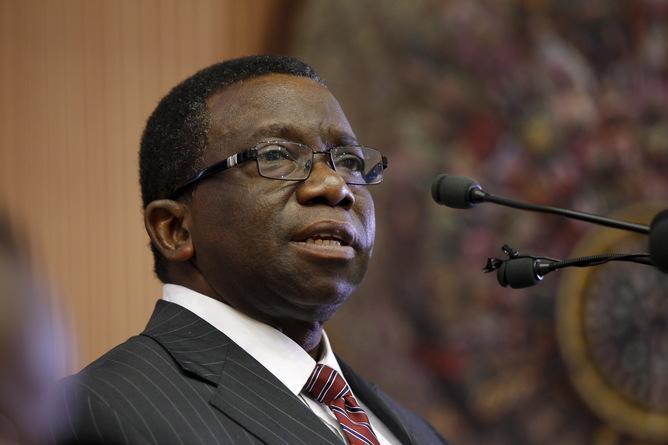The Minister of Health, Isaac Adewole, on Sunday said the Federal Government has concluded plans to roll out nationwide screening for most common types of cancer.
The minister via a statement issued by Boade Akinola, director of media and public relations of the ministry in Abuja, also said individuals have roles to play to check cancer.
Mr. Adewole spoke at a ceremony to mark the 2018 World Cancer Day, with the theme “We can, I can.”

The News Agency of Nigeria reports that World Cancer Day is cerebrated on February 4 every year.
According to the minister, the screening will be on the most common types of cancer, such as breast and cervical cancer in women and prostate cancer among men.
He stated that this year’s theme was geared towards exploring individual and collective drive in reducing the global burden of cancer.
Professor Adewole said individuals could play their role in fighting cancer through healthy lifestyle choices by engaging in weekly physical activities for at least two and half hours for adult, and an hour for children.
He said other lifestyle modifications included avoiding tobacco smoking and eating a healthy diet, limiting alcohol intake and staying safe under the sun.
Mr. Adewole also emphasised that high index of suspicion for early symptoms and signs of cancer were important, because finding cancer early makes it easier to treat and cure.
The minister appealed to communities to dispel myths and misconceptions that led to stigma and discrimination against people living with the disease.
Mr. Adewole said the commissioning of a new radiotherapy machine at National Hospital Abuja, recently, would provide easy access to radiation treatment for Nigerians.
He added that additional new machine was donated by SHELL Nigeria Exploration and Production Company (SNEPCO) and would be in operational at National Hospital Abuja in the next few months.
He added that the facility at Lagos University Teaching Hospital (LUTH) would be offering full and uninterrupted services from June 2018.
“In spite of the numerous interventions by the government and other partners, some factors are militating against efforts to effectively combat the scourge of cancer in Nigeria.
“The key barriers to treatment of cancer in Nigeria, are: poor awareness, poor health seeking behaviour, low level of non-governmental investments, low number of skilled health care personnel, funding gaps, amongst others,’’ Mr. Adewole said.
He said government was committed to the development of the Public Private Partnership strategies to address the funding gaps and manpower shortages to surmount these barriers.
(NAN)










